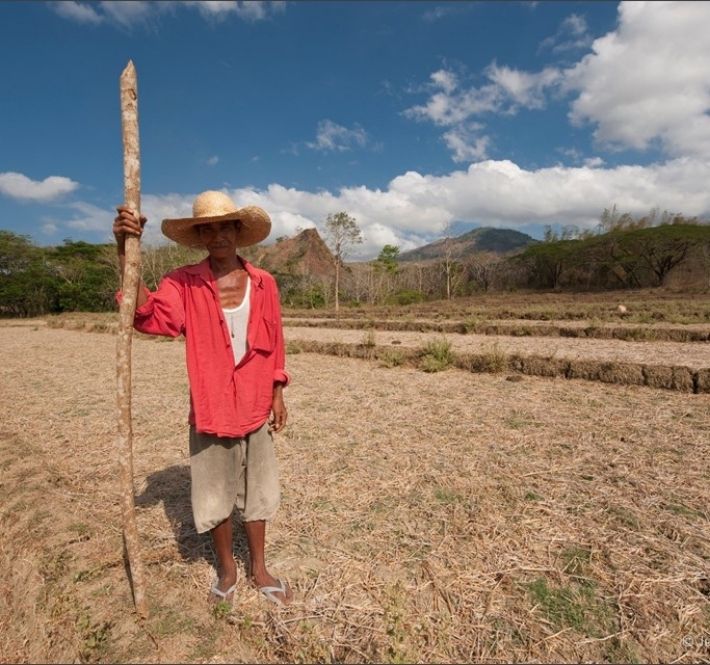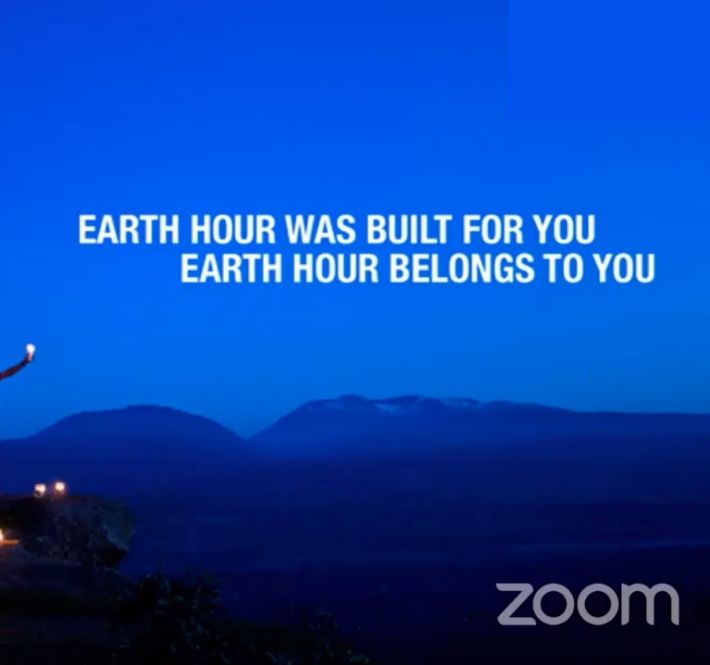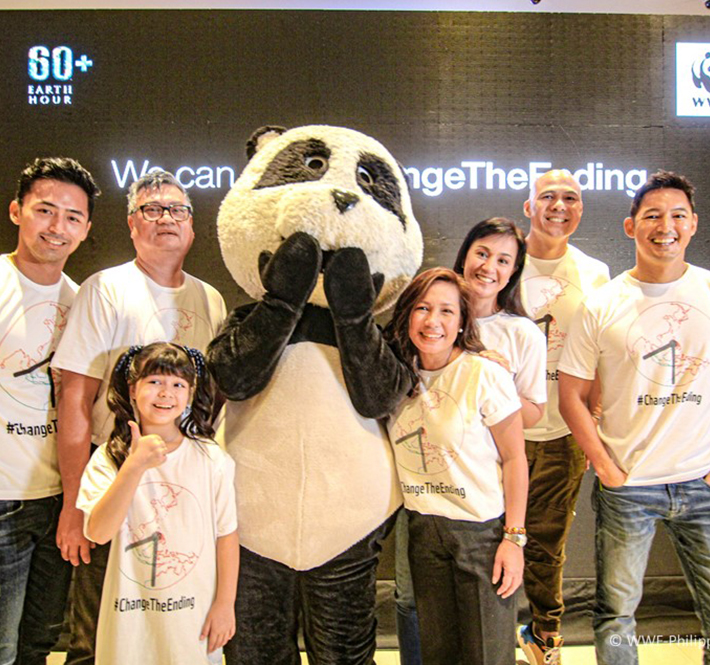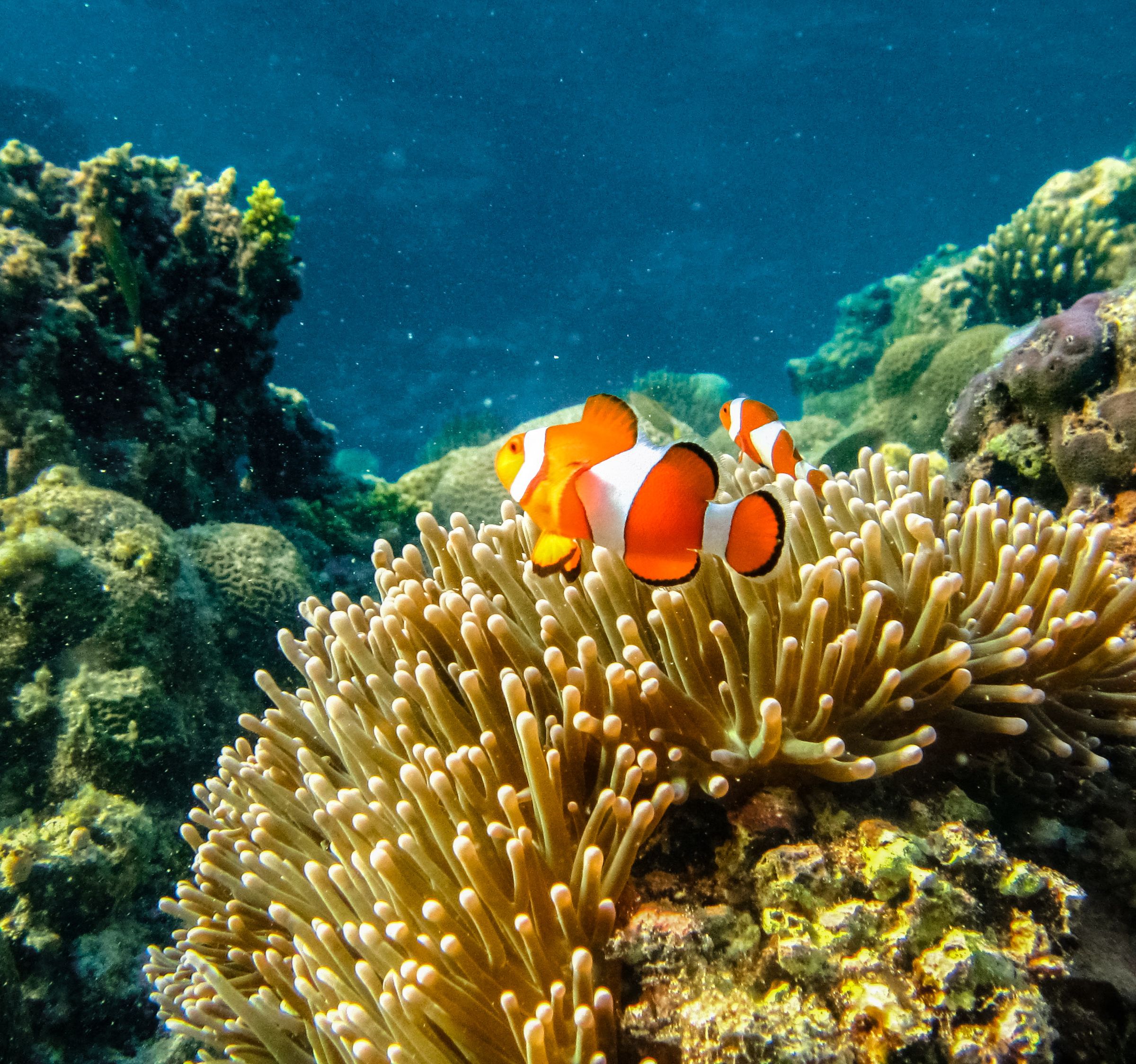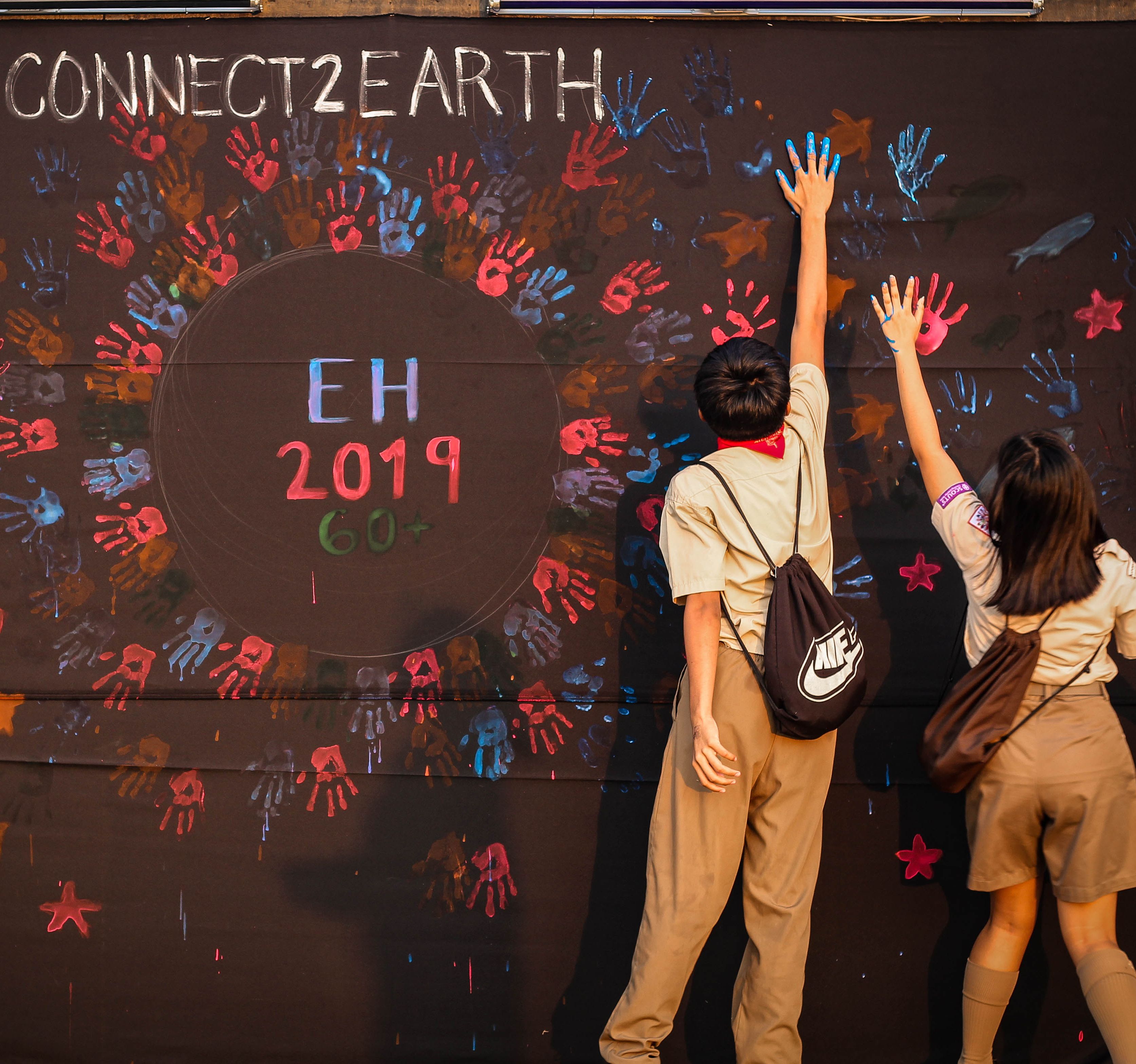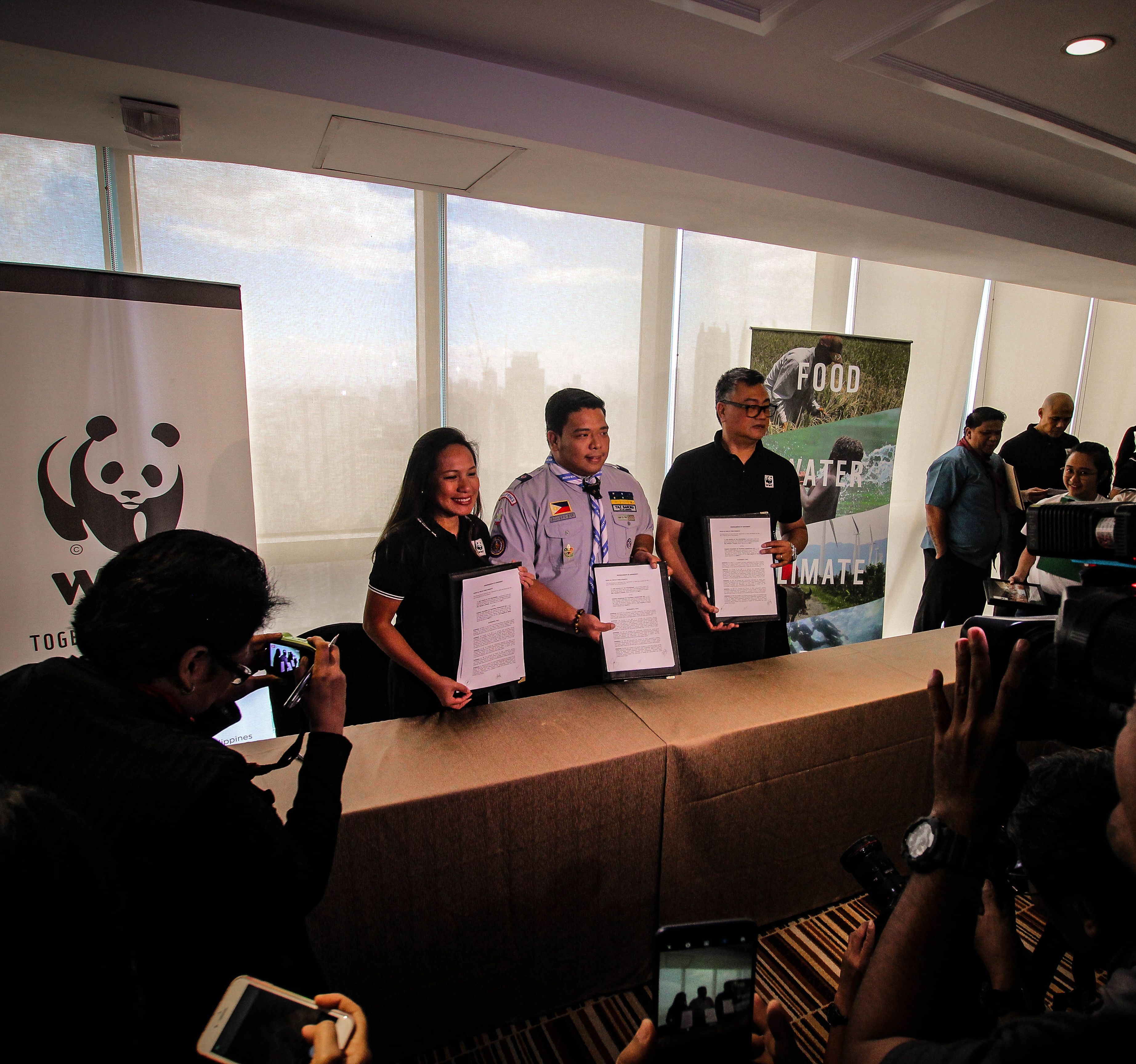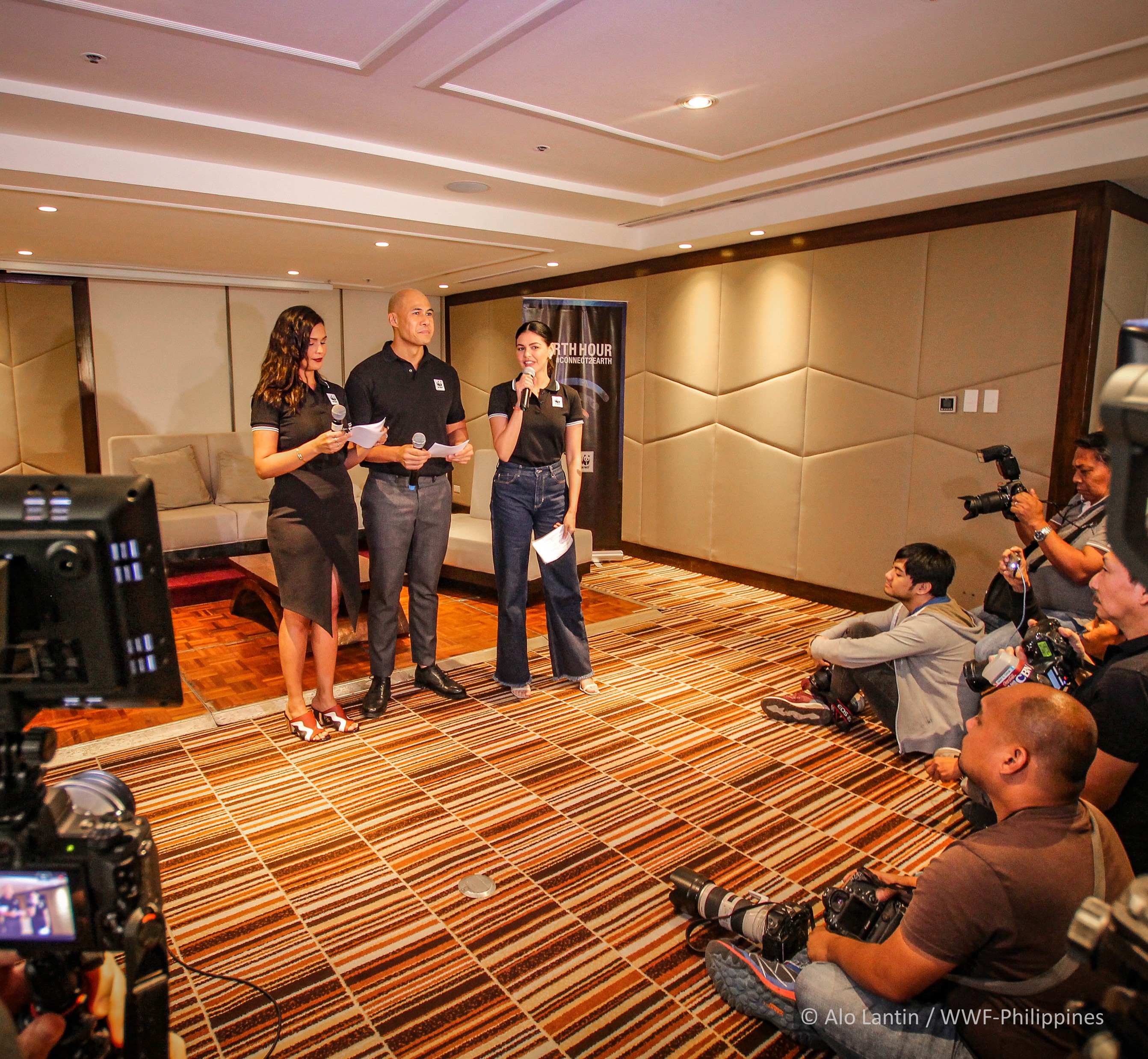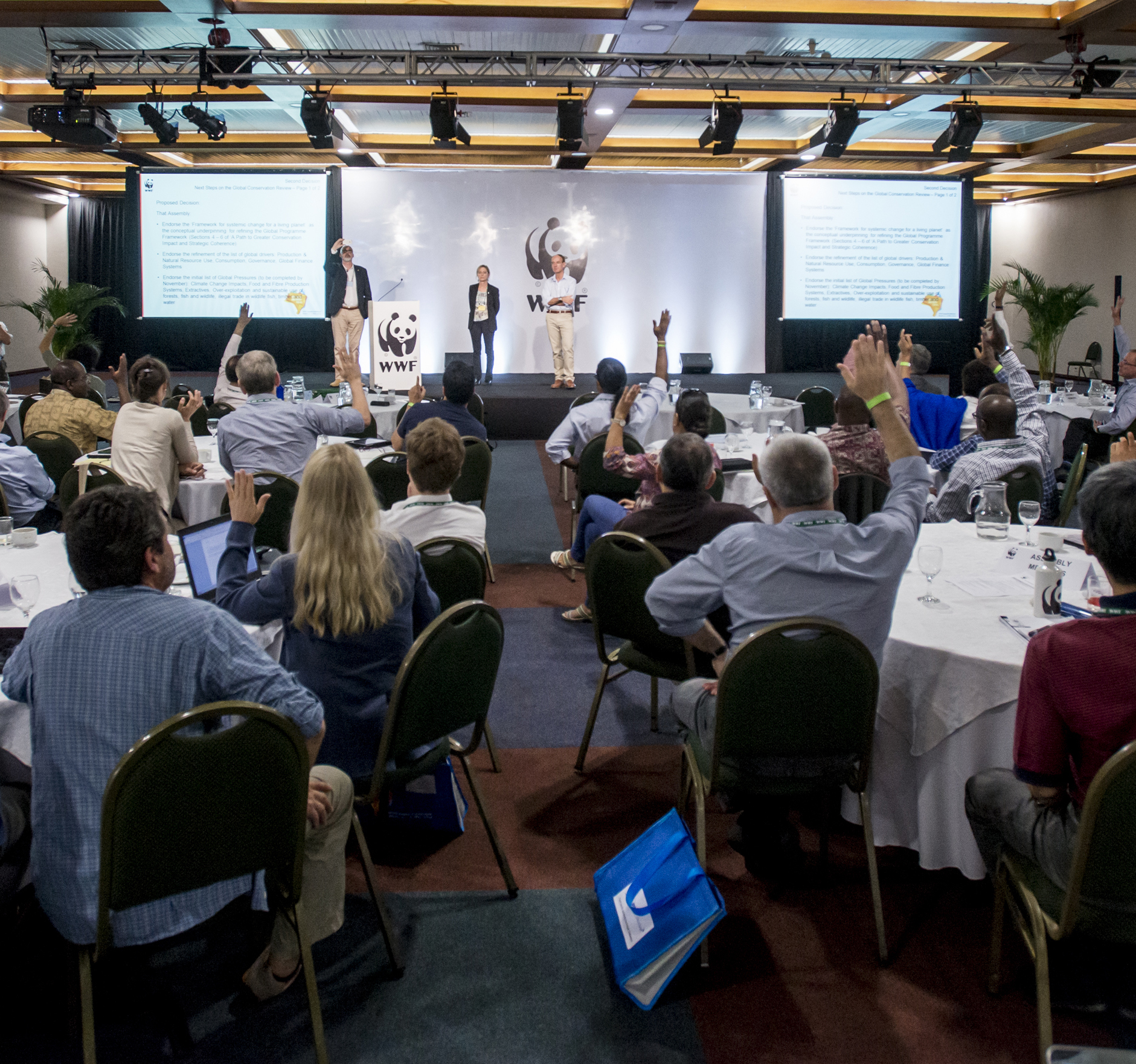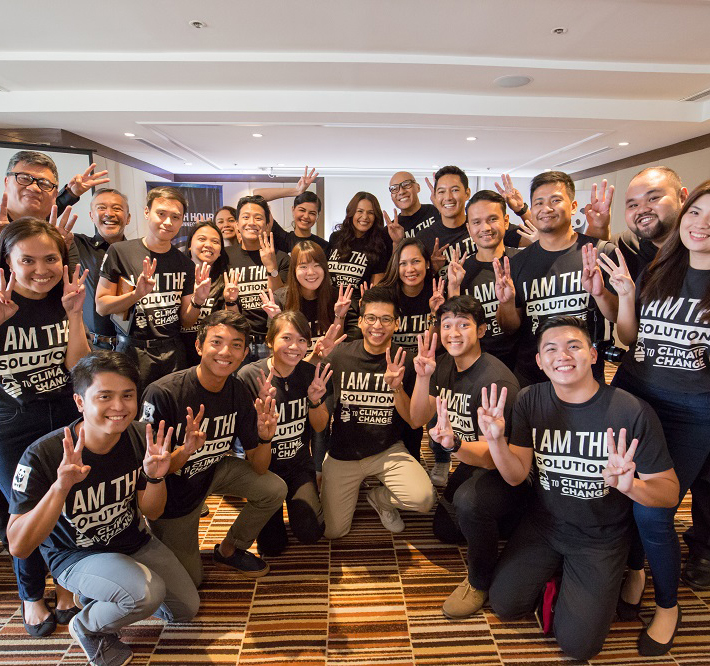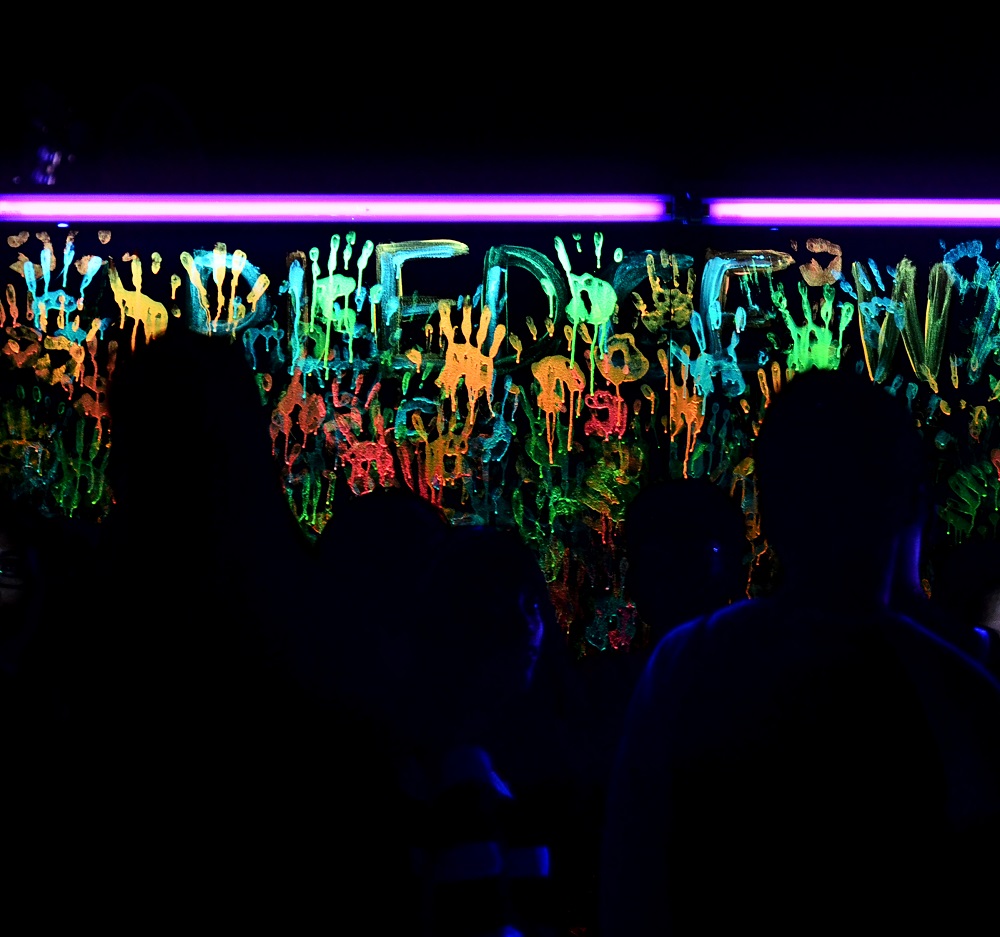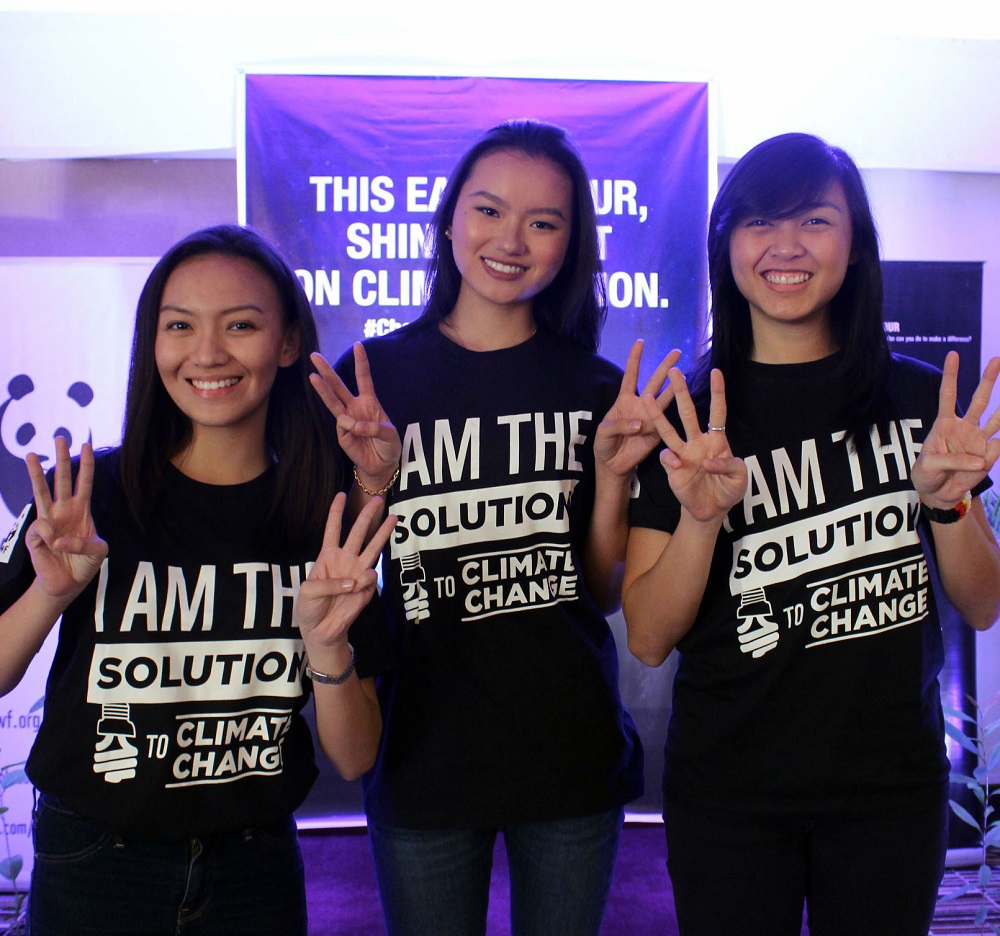Earth Hour at a Glance
Earth Hour is a global environmental movement of WWF, aimed at inspiring and empowering individuals, businesses, organizations, and governments to take tangible action for the planet. It has grown from a symbolic event in Sydney 2007 to the world’s largest grassroots environmental movement spanning over 7,000 cities and 180 countries and territories. As the movement grows, the one-hour lights-out event continues to be the symbol of a broader commitment toward the planet. The core message of Earth Hour lies in going Beyond the Hour - on what tangible action you can do after the lights go back on. 💡
Here are some Beyond the Hour outcomes in the Philippines:
- The deployment of portable solar lamps to replace dangerous and dirty kerosene lamps in Palawan and Mindoro.
- The sharing of best practices for communities via the One Planet City Challenge.
- The dissemination of climate change solutions via environmental education sessions, training modules, heavy media engagements, and talks.
EARTH HOUR 2021 
It is clearer than ever that our future and the future of our planet are intrinsically linked and both are under threat.
2020 has proven to us that nature is essential for our existence and intact natural systems are imperative to all our futures. What we do to nature - we do to ourselves. We need to urgently mend our broken relationship with nature.
Earth Hour 2021 will be a key moment to unite people to speak up for nature. Earth Hour will take place on 27 March 2021 at 8:30pm. In the lead up to and on the night of Earth Hour, we will ask people around the world to switch off and speak up for nature - to stand in solidarity to show we care about the future of our planet, our one shared home.
This year, Earth Hour is asking people to speak up for nature in as many diverse and creative ways as possible. We will encourage people to join their local Earth Hour events (likely virtually), share their stories of why nature matters to them - or simply learn more about why climate change and nature loss are the two biggest environmental issues facing our planet today. A new digital activation will ask people around the world to switch off virtually in solidarity as the hour spreads across the globe.
The time is now. We must speak up now to safeguard the health of our planet and in turn, our own health and well-being.
#SpeakUpForNature Campaign
Nature underpins everything. The air we breathe, the water we drink and the food we eat all rely on functioning natural systems and the production of common goods, livelihoods and our health and wellbeing also rely on nature. Crucially, protecting nature is also a key solution to counteracting the effects of climate change. We can’t beat climate change without protecting nature nor re-establish a thriving natural world without a stable climate.
Recent events have forced people around the world to re-evaluate the vital importance of nature, its impact in our daily lives and the huge threats it faces. It has become clearer that our health and the health of our planet are intrinsically linked and both are under threat. So why do we continue with unsustainable human activity, destroying habitats, accelerating climate change and increasing the risk of diseases like #COVID19?
Without recognising the costs, people have taken more and more from nature, with human activity altering landscapes and ecosystems beyond recognition; polluting waterways, filling the oceans with plastic waste and destroying nature on an unprecedented scale.
It’s vital that we reverse the loss of biodiversity - the variety of life on Earth and places where they live - and it’s vital that we restore destroyed and deteriorated ecosystems as they underpin a healthy natural world.
This Earth Hour, we need everyone who understands this vital truth to speak up for nature and help spark millions of conversations to elevate nature loss to a global audience. We must stop the destruction of nature on which our health, happiness and prosperity depend.
Global online action: Speak Up for Nature!
Earth Hour 2021 is an amazing opportunity for you to join millions around the world and speak up for nature. We are calling on you to show decision-makers that you, your family, your community and your organisations care about the dual challenges facing our planet - climate change and nature loss - and want a future in which both people and nature can thrive.
You can do this in many ways including partaking in our on-the-night online digital switch off activation - or any other actions that demonstrate you are speaking up for nature and calling on world leaders to agree a New Deal for Nature and People in 2021.
EARTH HOUR 2020 🇵🇭
Uniting millions around the world for climate action, Earth Hour is a testament to our collective power to make significant change. A simple “lights out” event in 2007 has grown to more than 17,900 landmarks in 188 countries switching off their lights in solidarity with the planet last year. Earth Hour sparked online conversation across the globe that brought more than 3.5 billion impressions, with related hashtags trending in 33 countries.
Earth Hour is known as the world’s largest grassroots movement for the environment and everyone is encouraged to participate and take meaningful and urgent action to ensure a living planet for generations to come.
This year, we want to dedicate our efforts into making people understand the gravity of the current environmental crisis. Last decade was the hottest ever recorded. Meanwhile, over 60% of all vertebrate life has been lost. Millions are now faced with hunger, thirst, and poverty, made worse by our negative impacts on the Earth. We are calling on all Filipinos to participate in the #EarthHour2020 as we switch off our inaction and switch on for a better world.
#EarthHourPH2020 will be held on March 28, 8:30pm.
#ChangeTheEnding Campaign
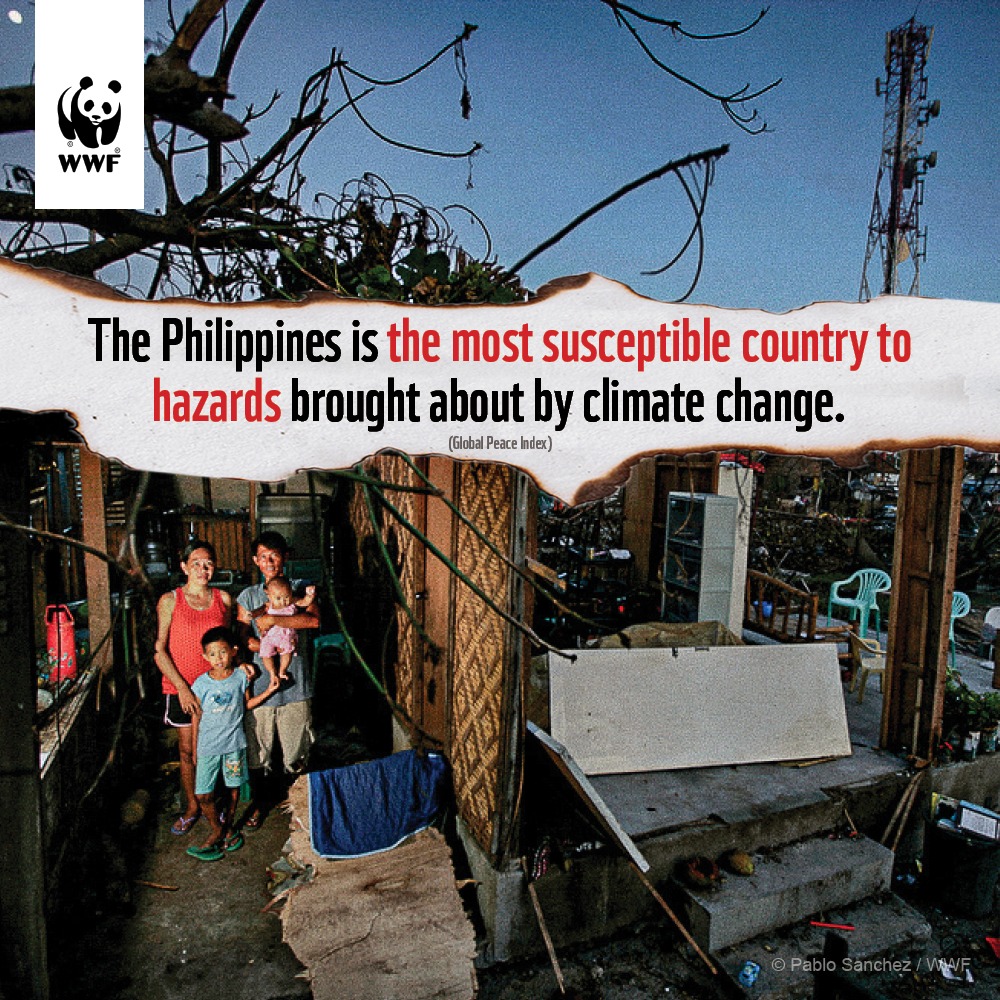
We are running out of time. Our commitments have not been able to sufficiently stop the environmental and climate crisis. Storms are now stronger than ever before and extinction rates have continued to rise, while human suffering continues to grow with the loss of environmental integrity. Scientists predict that we only have ten years left to reverse the current trend of environmental degradation - and we must act now.
Faced with the enormity of the task ahead, the World Wide Fund for Nature (WWF) Philippines is expanding its work in the holistic conservation of our natural resources and the protection of our planet’s biodiversity. From ridge to river to reef, we work with our partners in the co-creation of innovative solutions to the most pressing environmental concerns of today. We use science in the service of life as we continue to strive for a future where man lives in harmony with nature.
Despite having projects addressing biodiversity protection and climate change adaptation, WWF-Philippines will not be able to reverse the current crisis without everyone’s involvement. Our goal to protect the planet, a goal that must be shared by all, will not be realized if we do not all make changes to our lifestyles today. We need governments, businesses, and individuals alike not just to commit, but to act toward a more sustainable tomorrow.
This March, WWF-Philippines will simultaneously be holding Earth Hour 2020 on March 28, as well as launching the #ChangeTheEnding campaign. Over the next five years, we will work closely with our partners in focusing on scaled solutions to address the monumental and very urgent environmental challenges facing the present and next generations of Filipinos. We want everyone to know that while the situation is grim, we can still #ChangeTheEnding if we start acting today. We want all Filipinos to raise their voice for the planet, and to make nature matter.
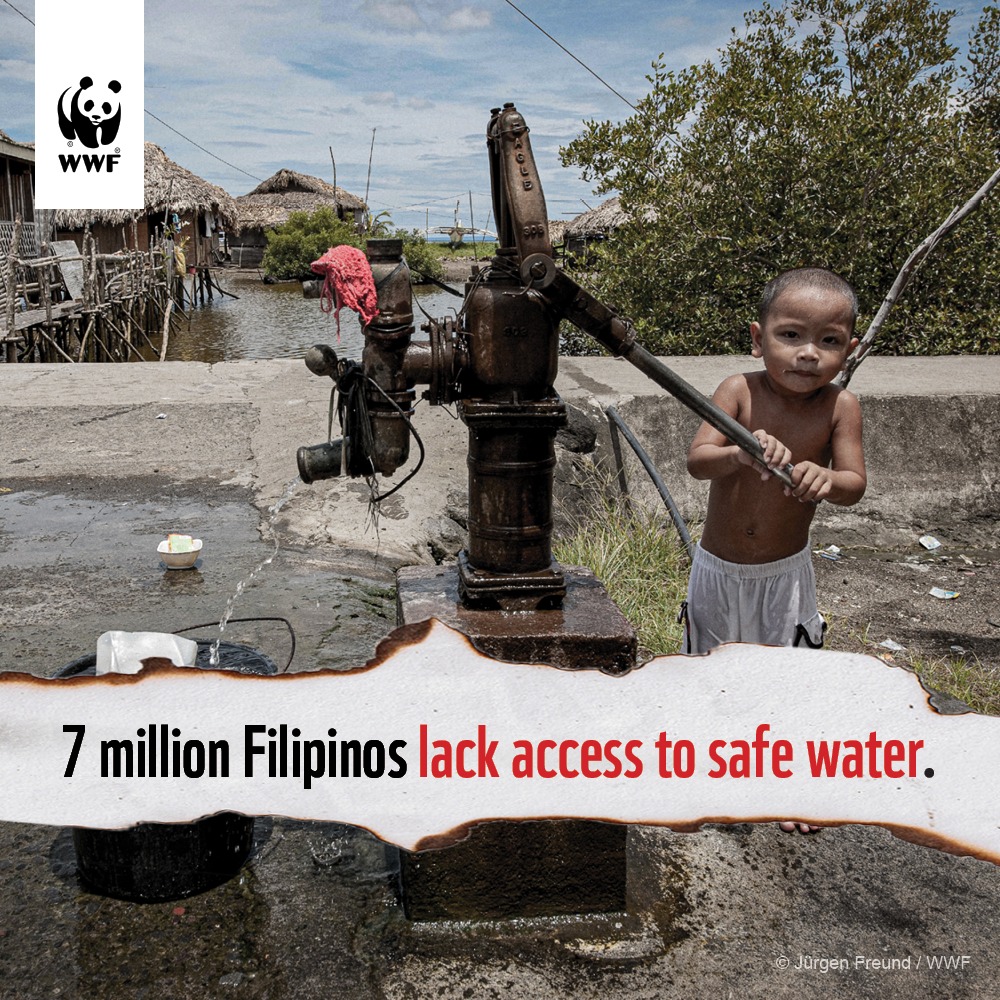
We now stand at a flashpoint in human history. Our actions today will determine the course of all our futures. This Earth Hour, we invite everyone to join us in living differently today, for the sake of our planet and our shared tomorrow.
EARTH HOUR 2019 🇵🇭
Understanding Biodiversity
Starting as a symbolic lights out event in Sydney in 2007, WWF’s Earth Hour has grown to become the world's largest grassroots movement for the environment. It’s been more successful than we ever imagined - inspiring individuals, communities, businesses and organizations and reaching more than 180 countries and territories in 2018.
While climate change remains a vital issue for our planet, we believe the spotlight must also focus on the accelerating loss of nature and the threats this poses to us all. We need a new deal for nature and people, to generate and galvanize attention in a similar way to what was achieved with the 2015 Paris agreement on climate change. And we need the Earth Hour movement to play a key role.
This Earth Hour, we will invite our hundreds of millions of supporters and global networks to spark never-before-had conversations on the loss of nature around them. We need to reach more people than ever, helping them to understand why nature is so vital for their health, well-being and prosperity, and why we need urgent action.
Over the past decade, Earth Hour has helped bring climate action to the top of the agenda. Now is the time for us to build on this to create a broader movement for nature.
A Journey to Reverse the Loss of Nature
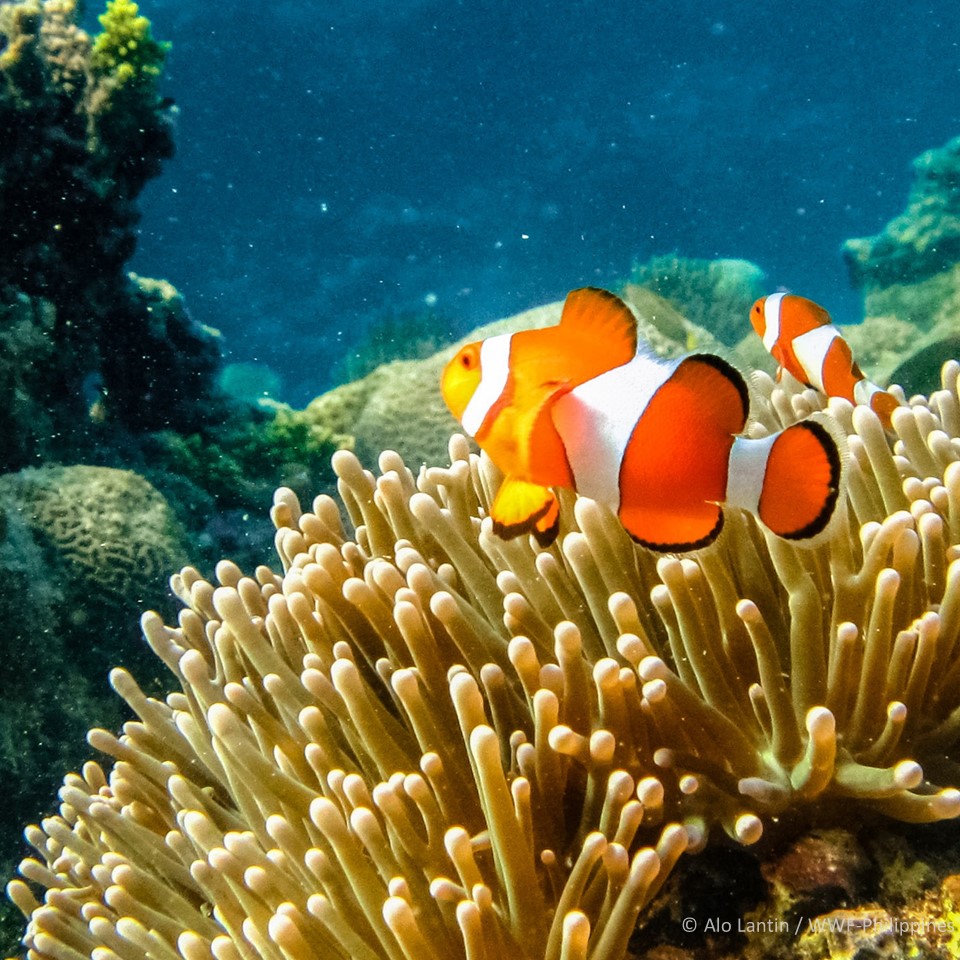
The journey to reverse the loss of nature starts here.
We will have a tremendous opportunity to influence the future direction of some of the world’s most important policy instruments for sustainable development in the year 2020: the Paris Agreement, Sustainable Development Goals and UN Convention on Biological Diversity (CBD). We need policy makers to reset the agenda so that by 2030 the loss of nature starts to reverse.
We believe that if people better understand what nature gives them - that it is not a ‘nice to have’ - they will try harder to protect it. Our global network is joining together to help connect people to the benefits and values of nature (and the danger of its loss) - a vital first step in building support for the global policy changes needed to reverse nature loss.
Earth Hour is one of the key opportunities for us to drive awareness, conversations and actions in the public and media to spotlight on this issue. We’ve partnered with the UN Convention for Biological Diversity (CBD) to achieve its Aichi Biodiversity Target 1 so that hundreds of millions of people understand the importance of biodiversity, which plays a critical role in protecting both people and nature.
Nature Matters
Nature not only provides us with all the things we need to live - from the air we breathe to the water we drink, and from the shelter we need to the economy we rely on - but also makes our lives better. However, its growing loss puts this all under threat. This Earth Hour, join millions around the world to turn off the lights and speak up about why nature matters. #Connect2Earth
For the past 10 years, people around the world have come together every Earth Hour to support efforts to tackle climate change. And, together, we have created a powerful movement that helped deliver strong global commitments to tackling this threat.
Climate change remains a big challenge for us all. But another urgent threat now demands our attention: the loss of nature. These two combined threats mean we must act - and now.
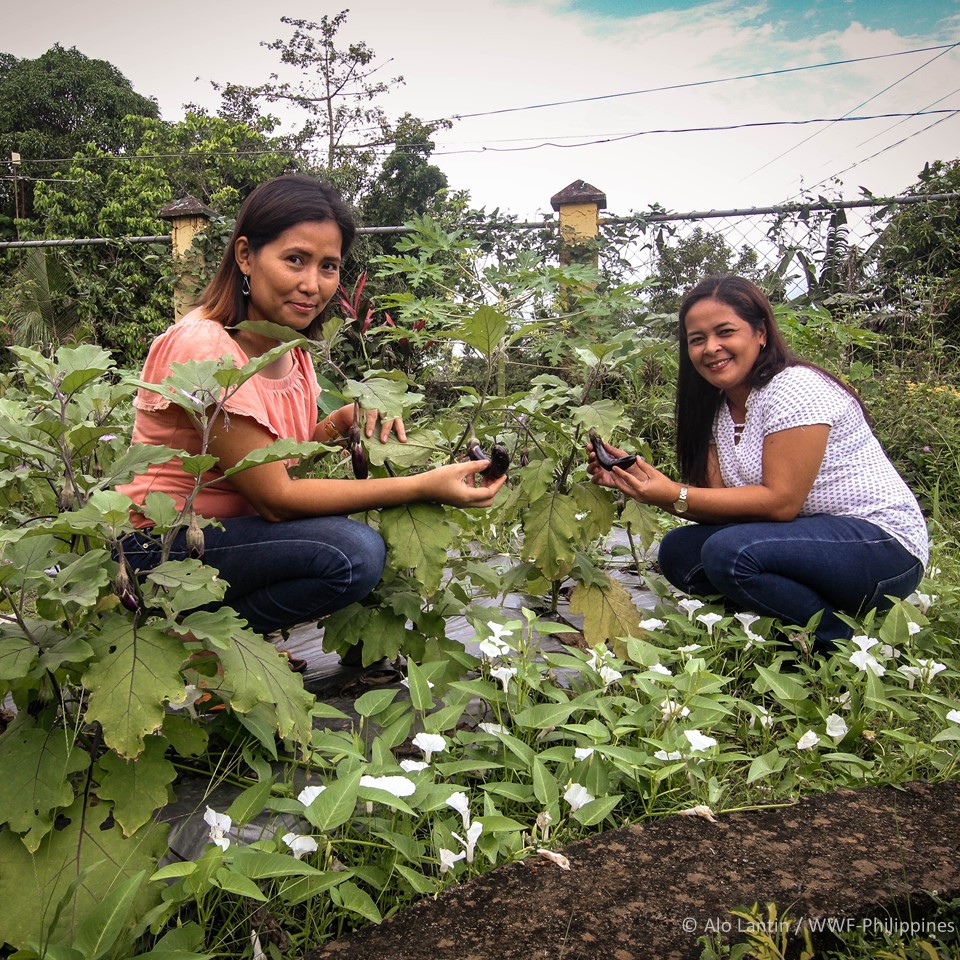
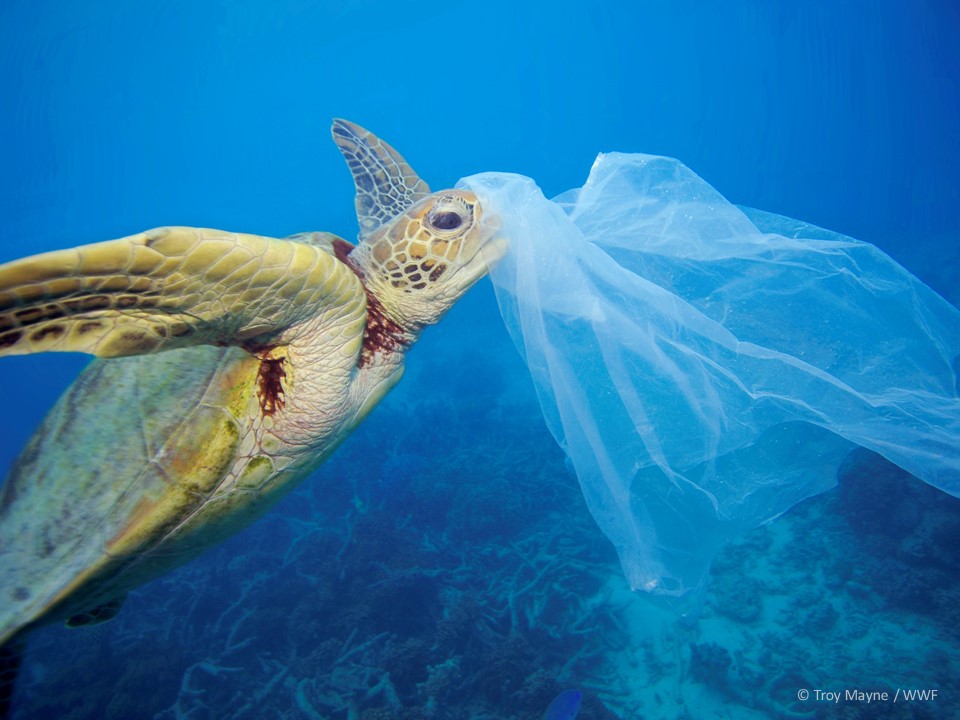
No Plastic in Nature Initiative
The Philippines is the 3rd biggest plastic polluter of oceans in the world. Single-use plastics (SUPs), which are used on an average of 7 minutes, take more than 100 years to decompose. Worse, they break up into smaller pieces called microplastic. These can be ingested by fish, and make it up the food chain to humans.
In its continuing effort to conserve the environment, the WWF network launched the “No Plastic in Nature Initiative” which aims to stop plastics from entering nature through: elimination of unnecessary plastic; doubling reuse, recycling and recovery; and ensuring remaining plastic is sourced responsibly by 2030. Adopting this initiative, WWF – Philippines targets to work on three work streams: (1) cities to push for local policies and legislations on SUP reduction, recycling, and waste management; (2) businesses through the Sustainable Journey to eliminate SUPs in the supply chain and to establish a circular economy path; and (3) general public through the #AyokoNgPlastik movement to spearhead individual actions to reduce and eventually eradicate single-use plastics in the country. Together with other vital partners, WWF-Philippines aims to achieve a long-term solution to this environmental problem that significantly contributes to nature loss.
To achieve its goal of eliminating plastic waste in the Philippines by reducing plastic waste leakage in the oceans by 80 to 100% by December 2030, WWF-Philippines believes that the way to end the plastics crisis is for the businesses, government, and consumers to work together.
Creating a Better World with the Boy Scouts of the Philippines
This year, WWF has partnered with the Boy Scouts of the Philippines to further engage the youth in addressing pressing environmental problems such as the issue of plastic pollution. In line with the “Scout for SDGs” of the World Organization of the Scout Movement, Earth Hour is the beginning of a partnership that goes beyond the hour with the goal of creating a better world and a future where both nature and humans thrive.
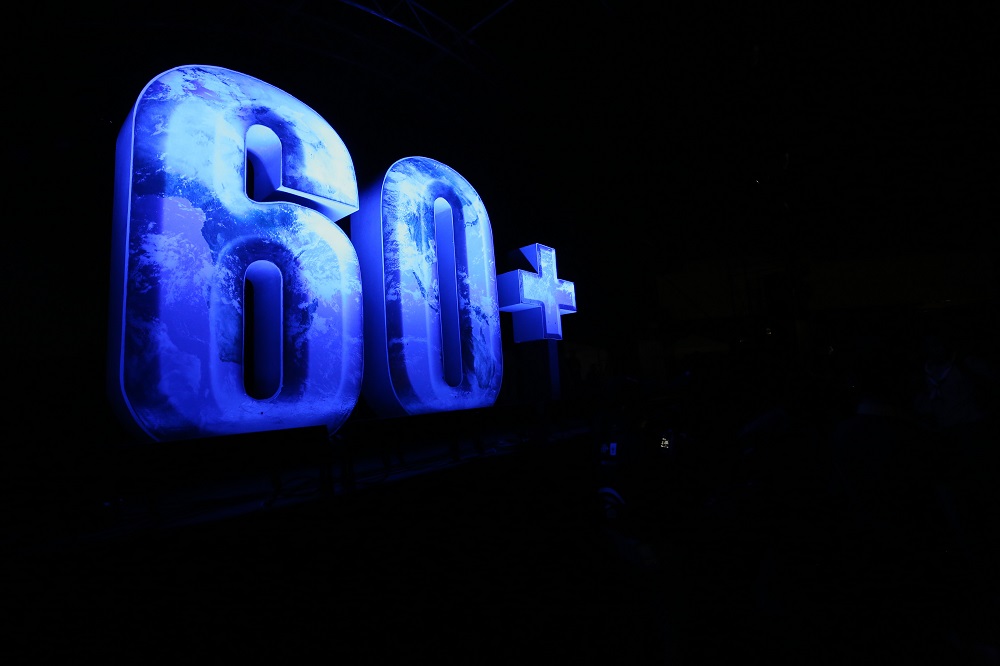
It all starts with Earth Hour 2019
WWF’s Earth Hour 2019 is an amazing opportunity for everyone to #Connect2Earth and declare #AyokoNgPlastik as a way to start changing the planet for the better. As one nation, we can join millions around the world to switch off the lights and shed a light on the issue of single-use plastics and why we need to address it to help reverse nature loss. Nature matters and so do our voices. Let’s all raise awareness and help change mindsets and habits when it comes single-use plastic usage towards our ultimate goal of mobilizing public support for legislations on plastic waste management.
For more about WWF’s work in helping to reverse nature loss, visit panda.org/connect2earth.
To engage in conversations on plastics, join facebook.com/groups/ayokongplastik.
LATEST STORIES
We need to act on our climate commitments - now
A document draft outlines the Philippines’ Nationally Determined Contributions (NDCs) - our commitments to combating
WWF-Philippines Invites Filipinos to Take Climate Action, Speak Up for Nature this Earth Hour 2021
On Saturday, 27 March at 8:30 p.m. local time, Earth Hour
This Earth Hour 2020, WWF-Philippines Encourages Filipinos to Help #ChangeTheEnding
Earth Hour, the world’s largest grassroots movement for the environment, will be held on March 28/p>
Earth Hour 2019: For Our Shared Futures
In the year 2020, our world leaders will be coming together for the 2020 UN Climate Change Conference. COP 26, they call it, and it is here that they will discuss the state of the world.
Earth Hour 2019 Main Event
With the threats of plastic pollution and loss of nature plaguing the planet, thousands gathered at Circuit Event Grounds in Makati to participate in the World Wide Fund for Nature (WWF) Philippines’ Earth Hour switch-off event.
Earth Hour 2019 Media Launch
Now on its 12th year, Earth Hour is considered as the world’s largest grassroots movemen
#EarthHourPH2018 Media Launch
Countdown is set for March 24 as World Wide Fund for Nature
#EarthHourPH2017 Switch-Off Event
An unprecedented 187 countries and territories including


